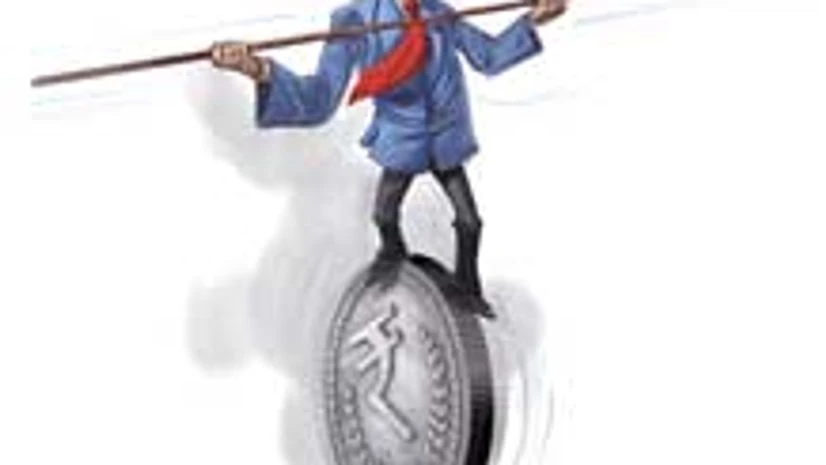Companies such as Whirlpool of India say they can’t plan more than a couple of months, as a fast-falling rupee currency drives up the cost of imports, forcing them to raise prices even as consumer spending crumbles.
The timing is particularly tough for consumer companies that were counting on India's September-to-December holiday season to spur sales. India's consumers, whose spending helped see the country through the global financial crisis in 2008, are closing their wallets, squeezing companies from carmakers to shampoo sellers.
ALSO READ: Weaker rupee and weak Mundra for Tata Power
Companies that import finished goods or raw materials are the worst hit as they scramble to hold onto margins while balancing the need to raise prices without deterring buyers.
“We are now planning for a month or three months at best, unlike six months or a year earlier,” said Shantanu Dasgupta, vice-president for corporate affairs and strategy at Whirlpool of India, the local arm of Whirlpool Corp, the world's largest home appliance maker.
The rupee has tumbled 17 per cent so far this year and hit an all-time low of 66.30 against the dollar on Tuesday, resisting a spate of interventions by the Reserve Bank of India (RBI) and the government as investor fears about emerging markets deepened in anticipation of reduced US monetary stimulus.
ALSO READ: Rupee sinks as FIIs extend selling
“A week back in our office we were working at (a rupee exchange rate of) 62 and now it's at 64 and looks like soon it will fall more and hit 67. How can a business operate when the currency is on a free-fall?” H S Bhatia, head of the enterprise business at television maker Videocon Industries, said in an August 21 interview.
The currency sell-off has since intensified, compounding difficulties for Videocon. The collapsing rupee pushes up prices of goods, adding to inflation on top of meagre urban salary hikes and an economy growing at its slowest in a decade.
Videocon imports raw materials and is planning to raise prices by about four-five per cent in the coming days, its second increase in two months.
The currency blow is landing just as consumer companies look toward a boost from their strongest annual sales period, which starts in September with Ganesh Chaturthi, when the god of luck and prosperity is welcomed into Hindu homes, followed by the Diwali festival and then Christmas.
India’s total consumption expenditure, which includes private and government spending, grew 3.3 per cent in January-March from 9.3 per cent in the same period a year earlier, according to government estimates. Total consumption expenditure as a share of the country’s gross domestic product fell to 65.9 per cent in the fourth quarter of 2012-13 from 72.1 per cent in the first quarter of the same fiscal year.
Shoppers are not only cutting back on big-ticket purchases such as refrigerators, TVs or expensive branded apparel but even staples including soaps, ketchup and cosmetics.
A survey in June by the Associated Chambers of Commerce and Industry found monthly bills for the middle class had jumped 15 to 20 per cent in a month across major cities, as the falling rupee drove up prices of petroleum products and edible oil. A paper in August by the same group found that even deep-pocketed consumers were cutting back, with five-star hotels and fine dining restaurants registering a decline of 20 per cent in sales in the past three months after prices of imported food ingredients and spirits rose.
Makers of consumer goods like shampoos and soaps, popular defensive plays in weak economic times, are also feeling the pinch, with market leader Hindustan Unilever posting lower sales volumes in the June period for a fifth quarter.

)
